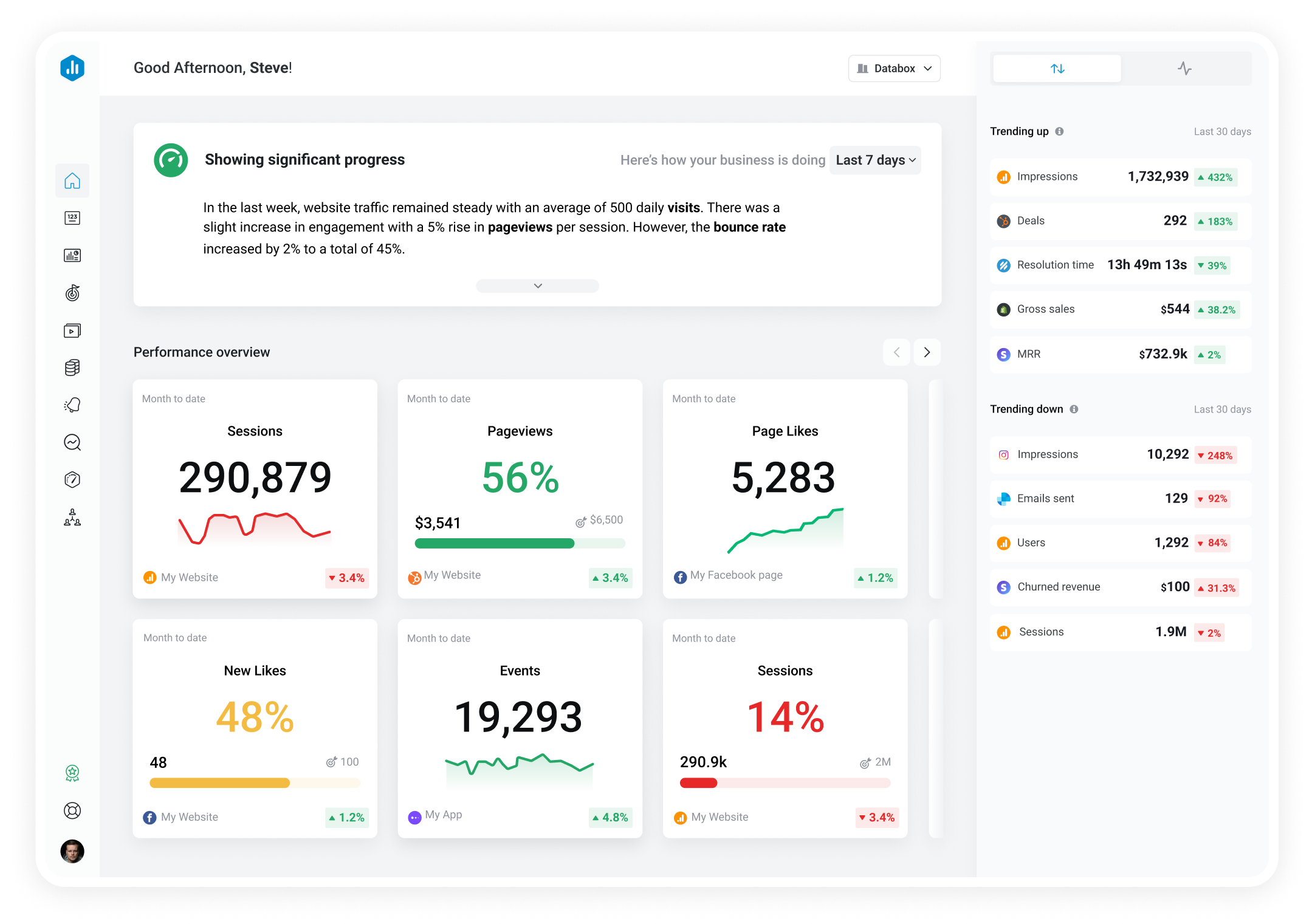Track all of your key business metrics from one screen
GET STARTED
 Bitbucket
Branches
Bitbucket
Branches The Branches metric in Bitbucket measures the number of branches that exist within a repository. It gives an idea of how teams manage their codebase and collaborate on new features or bug fixes.
With Databox you can track all your metrics from various data sources in one place.

Used to show a simple Metric or to draw attention to one key number.
Databox is a business analytics software that allows you to track and visualize your most important metrics from any data source in one centralized platform.
To track Branches using Databox, follow these steps:
 Goals
Goals Scorecards
Scorecards Metric Digest
Metric Digest Metric Builder
Metric Builder Data Calculations
Data Calculations Performance Screen
Performance ScreenBitbucket dashboard template provides you with the latest release stats like commits, repository status, top contributors for any Bitbucket project.

